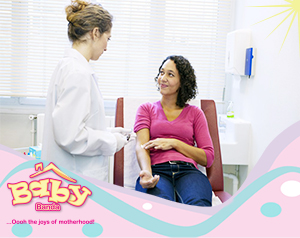In Kenya, getting RH factor testing done as early as possible can make the difference between life and death of an unborn baby. RH which stands for Rhesus Factor is an antigen that occurs in the red blood cells and is usually inherited from one’s parents. In most cases, the results are usually acceptable as most people are RH positive meaning that their blood does not produce any antigens that will be harmful to the growing baby regardless of their RH factor.
In cases where the parents are RH negative, there is no chance of the baby being RH positive meaning a mother’s body can accommodate the pregnancy to full term. Nevertheless, if the results indicate that a mother is RH negative then further tests must be done to ensure that the unborn baby is not in any danger.
Rh incompatibility
In cases, where the RH factor of a mother is negative and that of her child is positive, there is an increased chance of her antibodies attacking the unborn baby when they come into contact and can be fatal. However, this is usually seen mostly in women that are carrying their second pregnancy where the antibodies can cross through the placenta to the unborn baby and attack their blood cells resulting in mild or serious foetal anaemia.
Treatment for Rh incompatibility
Fortunately, treatment of RH incompatibility is available in Kenya with the main aim being to prevent antibodies from developing in the blood of the pregnant mother thus protecting the fetus. RH negative pregnant mothers are given an injection at twenty-eight weeks to prevent antibodies from developing in their blood. Another dose of the injection is given within a seventy-two-hour window after delivery for mothers that were earlier confirmed to be RH negative.













